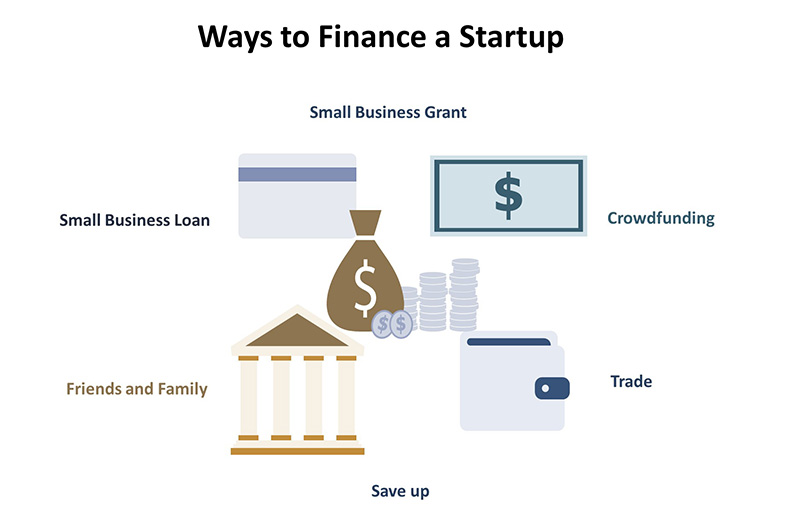Identifying Profitable Business Ideas on a Shoestring Budget
One of the most significant challenges facing entrepreneurs is identifying profitable business ideas that can be started with minimal upfront costs. However, with the right approach, it’s possible to find and evaluate business ideas that can be launched on a shoestring budget. Successful low-cost startups like Warby Parker, Dollar Shave Club, and Airbnb have demonstrated that it’s possible to build a thriving business with limited initial investment.
So, what are the key factors that contribute to the success of low-cost startups? Firstly, it’s essential to identify a genuine need in the market and create a solution that addresses that need. Secondly, entrepreneurs need to be willing to iterate and refine their business model based on customer feedback and market trends. Finally, low-cost startups need to be lean and agile, with a focus on minimizing waste and maximizing efficiency.
Some examples of profitable business ideas that can be started on a shoestring budget include online coaching or consulting services, affiliate marketing, and selling products through e-commerce platforms. These ideas require minimal upfront costs and can be launched quickly, allowing entrepreneurs to test and refine their business model before scaling up.
When evaluating business ideas, entrepreneurs should consider factors like market demand, competition, and potential revenue streams. They should also be willing to take calculated risks and experiment with different approaches to find what works best for their business. By taking a lean and agile approach, entrepreneurs can minimize their upfront costs and maximize their chances of success.
Low-cost startups also require a different mindset and approach to traditional businesses. Entrepreneurs need to be willing to bootstrap and self-fund their business, at least in the early stages. They also need to be prepared to work hard and wear multiple hats, from marketing and sales to product development and customer support.
How to Validate Your Business Idea without Spending a Fortune
Validating a business idea is a crucial step in the startup process, but it doesn’t have to break the bank. In fact, there are several cost-effective methods for validating business ideas that can help entrepreneurs save time and resources. One of the most effective ways to validate a business idea is through online surveys. By creating a simple survey using tools like Google Forms or SurveyMonkey, entrepreneurs can gather feedback from potential customers and gauge interest in their product or service.
Another cost-effective method for validating business ideas is social media testing. By creating a social media presence and sharing content related to their business idea, entrepreneurs can gauge interest and engagement from potential customers. This can be done using free social media platforms like Facebook, Twitter, and Instagram.
Lean startup methodologies are also an effective way to validate business ideas without spending a fortune. This approach involves creating a minimum viable product (MVP) and testing it with a small group of customers to gather feedback and iterate on the product. This approach can help entrepreneurs save time and resources by avoiding the creation of a full-fledged product that may not be viable.
Additionally, entrepreneurs can use online communities and forums to validate their business idea. By sharing their idea with online communities related to their industry, entrepreneurs can gather feedback and gauge interest from potential customers. This can be done using free online platforms like Reddit and Quora.
It’s also important to note that validating a business idea is an ongoing process. Entrepreneurs should continually gather feedback from customers and iterate on their product or service to ensure it meets their needs. By using cost-effective methods for validating business ideas, entrepreneurs can save time and resources and increase their chances of success.
In the context of low cost start up businesses 2023, validating a business idea is crucial to ensure that the business is viable and has the potential to generate revenue. By using cost-effective methods for validating business ideas, entrepreneurs can save time and resources and increase their chances of success.
How to Validate Your Business Idea without Spending a Fortune
Validating a business idea is a crucial step in the startup process, as it helps entrepreneurs determine whether their concept has the potential to succeed in the market. However, many aspiring entrepreneurs assume that validating a business idea requires a significant investment of time and money. Fortunately, this is not the case. With the right strategies and tools, it is possible to validate a business idea without breaking the bank.
One effective way to validate a business idea is through online surveys. By creating a simple survey using free tools like Google Forms or SurveyMonkey, entrepreneurs can gather feedback from potential customers and gain valuable insights into their needs and preferences. This information can be used to refine the business idea and ensure that it meets the needs of the target market.
Social media testing is another cost-effective way to validate a business idea. By creating a social media presence and sharing content related to the business idea, entrepreneurs can gauge interest and engagement from potential customers. This can be done using free social media analytics tools like Hootsuite or Buffer.
Lean startup methodologies are also an effective way to validate a business idea. This approach involves creating a minimum viable product (MVP) and testing it with a small group of customers. The feedback gathered from this process can be used to refine the product and ensure that it meets the needs of the target market.
Additionally, entrepreneurs can use free or low-cost tools like landing pages and email marketing software to validate their business idea. By creating a landing page and driving traffic to it using social media or paid advertising, entrepreneurs can gauge interest and collect email addresses from potential customers. This information can be used to build a mailing list and validate the business idea.
Low-cost start-up businesses 2023 can benefit from these cost-effective validation strategies. By using these methods, entrepreneurs can reduce the risk of launching a business that may not succeed and increase their chances of success. Moreover, these strategies can be used in conjunction with other low-cost startup strategies, such as bootstrapping and crowdfunding, to create a comprehensive and affordable startup plan.
Overall, validating a business idea does not have to be expensive. By using online surveys, social media testing, lean startup methodologies, and other cost-effective strategies, entrepreneurs can gather valuable insights and feedback from potential customers without breaking the bank. This information can be used to refine the business idea and increase the chances of success, making it an essential step in the startup process for low-cost start-up businesses 2023.
Bootstrapping 101: Essential Tools and Resources for Low-Cost Startups
Low-cost start-up businesses 2023 require careful planning and resource management to succeed. One of the most significant challenges faced by entrepreneurs is finding affordable tools and resources to help launch and grow their business. Fortunately, there are many free or low-cost options available that can help low-cost startups get off the ground.
Website builders are an essential tool for any startup, and there are many free or low-cost options available. Platforms like WordPress, Wix, and Weebly offer a range of templates and drag-and-drop tools that make it easy to create a professional-looking website without breaking the bank. Additionally, many website builders offer e-commerce integrations, making it easy to start selling products or services online.
Marketing platforms are another critical tool for low-cost startups. Social media management tools like Hootsuite and Buffer offer free or low-cost plans that allow entrepreneurs to schedule and publish content across multiple social media platforms. Email marketing platforms like Mailchimp and Constant Contact also offer free or low-cost plans that allow entrepreneurs to create and send targeted email campaigns.
Productivity software is also essential for low-cost startups. Tools like Trello and Asana offer free or low-cost plans that allow entrepreneurs to manage projects and tasks, while tools like Google Drive and Dropbox offer free or low-cost storage options for files and documents.
Other essential tools and resources for low-cost startups include accounting software like Wave and Zoho Books, customer relationship management (CRM) software like HubSpot and Pipedrive, and project management software like Basecamp and Podio.
Low-cost start-up businesses 2023 can also benefit from online communities and forums, where entrepreneurs can connect with other business owners, ask questions, and share knowledge and resources. Platforms like Reddit’s r/entrepreneur and r/smallbusiness, as well as online forums like Quora and LinkedIn groups, offer a wealth of information and support for low-cost startups.
Finally, low-cost startups can also benefit from free or low-cost educational resources, such as online courses and tutorials. Platforms like Udemy, Coursera, and Skillshare offer a range of courses on topics like marketing, finance, and productivity, while websites like Entrepreneur and Small Business Trends offer a wealth of articles and guides on starting and growing a business.
By leveraging these essential tools and resources, low-cost start-up businesses 2023 can save time and money, and focus on what matters most – growing and succeeding. Whether you’re just starting out or looking to scale your business, there are many affordable options available to help you achieve your goals.
Creative Financing Options for Low-Cost Startups
Low-cost start-up businesses 2023 often face significant challenges when it comes to securing funding. Traditional financing options, such as bank loans and venture capital, can be difficult to access and often require a significant amount of collateral or equity. However, there are several creative financing options available that can help low-cost startups get off the ground.
Crowdfunding is one popular option for low-cost startups. Platforms like Kickstarter, Indiegogo, and GoFundMe allow entrepreneurs to raise funds from a large number of people, typically in exchange for rewards or equity. This approach can be particularly effective for startups with a strong social media presence or a unique product or service.
Peer-to-peer lending is another option for low-cost startups. Platforms like Lending Club and Prosper allow entrepreneurs to borrow money from individuals, rather than traditional banks. This approach can be particularly effective for startups with a strong credit history or a solid business plan.
Community-supported funding models are also gaining popularity. Platforms like Patreon and Ko-fi allow entrepreneurs to raise funds from a community of supporters, typically in exchange for exclusive content or rewards. This approach can be particularly effective for startups with a strong community or a unique value proposition.
Incubators and accelerators are also a great option for low-cost startups. These programs provide funding, mentorship, and resources to early-stage startups in exchange for equity. Many incubators and accelerators focus on specific industries or sectors, so it’s essential to research and find the ones that align with your business.
Government grants and loans are also available for low-cost startups. Many governments offer programs to support small businesses and entrepreneurs, such as the Small Business Administration (SBA) in the US. These programs can provide funding, mentorship, and resources to help low-cost startups get off the ground.
Bootstrapping is also a viable option for low-cost startups. This approach involves using personal savings or revenue from early customers to fund the business. While it can be challenging, bootstrapping allows entrepreneurs to maintain control and equity in their business.
Low-cost start-up businesses 2023 can also consider alternative funding options, such as invoice financing, asset-based lending, and revenue-based financing. These options can provide quick access to cash, but often come with higher interest rates or fees.
Ultimately, the key to securing funding for a low-cost startup is to be creative and flexible. By exploring alternative financing options and being open to different approaches, entrepreneurs can increase their chances of success and build a strong foundation for their business.
Building a Lean and Agile Team on a Limited Budget
Low-cost start-up businesses 2023 often face significant challenges when it comes to building a team. With limited budgets, it can be difficult to attract and retain top talent. However, there are several strategies that can help low-cost startups build a talented and dedicated team without breaking the bank.
One effective way to build a team on a limited budget is to hire freelancers. Freelancers can provide a range of skills and expertise, from writing and design to programming and marketing. Platforms like Upwork, Freelancer, and Fiverr make it easy to find and hire freelancers, and many offer affordable rates and flexible payment terms.
Interns are another great option for low-cost startups. Interns can provide a fresh perspective and new ideas, and many are eager to gain experience and build their portfolios. Platforms like Internships.com and WayUp make it easy to find and hire interns, and many offer affordable rates and flexible payment terms.
Part-time employees are also a great option for low-cost startups. Part-time employees can provide a range of skills and expertise, from customer service to marketing and sales. Platforms like Part-time Jobs and FlexJobs make it easy to find and hire part-time employees, and many offer affordable rates and flexible payment terms.
Another effective way to build a team on a limited budget is to leverage online communities and forums. Platforms like Reddit’s r/entrepreneur and r/smallbusiness, as well as online forums like Quora and LinkedIn groups, offer a wealth of information and support for low-cost startups. These communities can provide valuable advice, resources, and connections, and many offer affordable rates and flexible payment terms.
Low-cost start-up businesses 2023 can also consider outsourcing certain tasks and functions. Outsourcing can provide a range of benefits, from cost savings to increased efficiency and productivity. Platforms like Zirtual and Fancy Hands make it easy to outsource tasks and functions, and many offer affordable rates and flexible payment terms.
Finally, low-cost startups can also consider partnering with other businesses or organizations. Partnerships can provide a range of benefits, from access to new markets and customers to increased resources and expertise. Platforms like PartnerUp and Biznik make it easy to find and connect with potential partners, and many offer affordable rates and flexible payment terms.
By leveraging these strategies, low-cost start-up businesses 2023 can build a talented and dedicated team without breaking the bank. Whether you’re just starting out or looking to scale your business, there are many affordable options available to help you achieve your goals.
Remember, building a team on a limited budget requires creativity, flexibility, and a willingness to think outside the box. By being open to new ideas and approaches, low-cost startups can attract and retain top talent, and achieve success in a competitive market.
Marketing on a Shoestring: Effective Strategies for Low-Cost Startups
Low-cost start-up businesses 2023 often face significant challenges when it comes to marketing. With limited budgets, it can be difficult to reach and engage with target audiences. However, there are several effective marketing strategies that can help low-cost startups achieve their goals without breaking the bank.
Social media marketing is a powerful tool for low-cost startups. Platforms like Facebook, Twitter, and Instagram offer a range of free or low-cost marketing options, from organic posting to paid advertising. By creating engaging content and leveraging hashtags, low-cost startups can reach and engage with large audiences.
Content marketing is another effective strategy for low-cost startups. By creating high-quality, relevant, and valuable content, low-cost startups can attract and retain a clearly defined audience. This can be achieved through blog posts, videos, podcasts, and other forms of content.
Email marketing is also a cost-effective way to reach and engage with target audiences. By building an email list and creating regular newsletters or promotional emails, low-cost startups can stay top of mind with customers and prospects.
Influencer marketing is another strategy that can be effective for low-cost startups. By partnering with influencers who have a large following in their target audience, low-cost startups can reach and engage with new audiences.
Low-cost start-up businesses 2023 can also leverage user-generated content (UGC) to create engaging and authentic marketing campaigns. By encouraging customers to share their experiences and photos with the brand, low-cost startups can create a sense of community and social proof.
Referral marketing is another effective strategy for low-cost startups. By incentivizing customers to refer friends and family, low-cost startups can create a viral marketing campaign that drives new business.
Low-cost startups can also use free or low-cost marketing tools like Canva, Hootsuite, and Mailchimp to create and schedule marketing content. These tools offer a range of features and functionalities that can help low-cost startups streamline their marketing efforts.
Finally, low-cost startups can also leverage online communities and forums to reach and engage with target audiences. By participating in online discussions and providing valuable insights and advice, low-cost startups can establish themselves as thought leaders in their industry.
By leveraging these effective marketing strategies, low-cost start-up businesses 2023 can reach and engage with target audiences without breaking the bank. Whether you’re just starting out or looking to scale your business, there are many affordable marketing options available to help you achieve your goals.
https://www.youtube.com/watch?v=6niBBZzK7kA
Measuring Success and Scaling Your Low-Cost Startup
Low-cost start-up businesses 2023 require careful planning and execution to achieve success. One of the most critical aspects of running a successful low-cost startup is measuring success and scaling the business. In this article, we will discuss the importance of tracking key performance indicators (KPIs) and metrics to measure the success of a low-cost startup, and provide guidance on how to scale a successful startup while maintaining a lean and agile approach.
Tracking KPIs and metrics is essential for measuring the success of a low-cost startup. KPIs and metrics provide valuable insights into the performance of the business, allowing entrepreneurs to make informed decisions and adjust their strategy as needed. Some common KPIs and metrics for low-cost startups include website traffic, social media engagement, customer acquisition costs, and revenue growth.
Once a low-cost startup has achieved success, it’s essential to scale the business while maintaining a lean and agile approach. This can be achieved by leveraging technology, outsourcing non-core functions, and hiring a talented and dedicated team. Low-cost startups can also use cost-effective marketing strategies, such as social media marketing and content marketing, to reach new audiences and drive growth.
Another key aspect of scaling a low-cost startup is maintaining a lean and agile approach. This can be achieved by focusing on core functions, eliminating waste, and continuously improving processes. Low-cost startups can also use agile methodologies, such as Scrum and Kanban, to manage projects and prioritize tasks.
Low-cost start-up businesses 2023 can also leverage data analytics to measure success and scale their business. By using data analytics tools, such as Google Analytics and Mixpanel, low-cost startups can gain valuable insights into customer behavior, preferences, and needs. This information can be used to inform product development, marketing strategies, and customer support.
Finally, low-cost startups can also use cost-effective customer support strategies, such as email support and social media support, to provide excellent customer service while keeping costs low. By leveraging technology and outsourcing non-core functions, low-cost startups can provide 24/7 customer support without breaking the bank.
By following these tips and strategies, low-cost start-up businesses 2023 can measure success and scale their business while maintaining a lean and agile approach. Whether you’re just starting out or looking to scale your business, there are many affordable options available to help you achieve your goals.
Remember, measuring success and scaling a low-cost startup requires careful planning, execution, and continuous improvement. By leveraging technology, outsourcing non-core functions, and hiring a talented and dedicated team, low-cost startups can achieve success and drive growth in a competitive market.






